
Blog
Seven Years of Critical Torah Study – Scholars and Rabbis Reflect
Shavuot 5780 / 2020 - Celebrating seven years of TheTorah.com
To mark the occasion of the seventh anniversary of TheTorah.com this Shavuot, we asked academic and rabbinic scholars to share their reflections on our work / the role of critical scholarship for Torah study and the importance of engaging directly with the consequent challenges.
-
Prof. Yairah Amit
-
Dr. Gábor Balázs
-
Dr. Rabbi Nathan Lopes Cardozo
-
Prof. Rabbi Tamara Cohn Eskenazi
-
Dr. Tova Ganzel
-
Dr. Rabbi Yitz Greenberg
-
Prof. Ed Greenstein
-
Prof. Menachem Kellner
-
Judy Klitsner
-
Prof. Rabbi Marty Lockshin
-
Rabbi Asher Lopatin
-
Prof. Rabbi Dalia Marx
-
Dr. Rabbi Jeremy Rosen
-
Prof. Tamar Ross
-
Prof. Jonathan D. Sarna
-
Dr. Hacham Isaac S. D. Sassoon
-
Prof. Rabbi Ismar Schorsch
-
Rabbi Ron Stern
-
Prof. Chaim I. Waxman
-
Rabbi David Wolpe
-
Rabbi Elaine Zecher
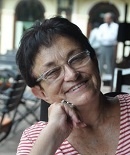
Prof. Yairah Amit
Professor (Emerita) of Hebrew Bible in Tel Aviv University's Department of Hebrew Bible – See author page
For me, TheTorah.com is a kind of a miracle.
The fact that academic biblical scholarship, including biblical criticism, Ancient Near Eastern studies and archeology, became accessible to readers from different backgrounds, and every month 100,000 readers are interested in it, is an amazing achievement.
Motivating so many great scholars from all over the world to cooperate in this venture is not simple, and TheTorah.com did it.
My answer to the question “How did they do it?” is based on my personal experience. The staff of this project are open-minded and tolerant intellectuals, generally knowledgeable in many areas, including modern approaches to the Bible. Moreover, they love their mission, and their dialogue with their authors is full of respect and understanding. My great hope is that someday we have such a project in Israel.[1]
I will finish with the words of the LORD to Gideon:
שופטים ו:יד לֵךְ בְּכֹחֲךָ זֶה
Judg 6:14 “Go in this strength of yours!”
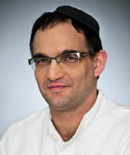
Dr. Gábor Balázs
Associate Professor and Deputy General Rector, Jewish Theological Seminary - The University of Jewish Studies, Budapest
The treatment of the Jewish Holidays in general and Shavuot in particular by TheTorah.com is an excellent example of the importance of critical scholarship for contemporary religious Jewry. Here I only want to highlight three aspects that make an enormous contribution to the religious consciousness of our age:
1) Studying the historical evolution of our holidays, from parallels in ANE cultures through Hellenism and early and late medieval Christianity to the birth of the State of Israel, might give us the courage to advocate for certain changes that many in our communities feel necessary.
2) Rethinking basic ideas of Jewish thought such as “Torah from Heaven” and “Revelation” forces us to maintain our intellectual integrity and to reinterpret theological concepts in order to ensure their relevance.
3) The haftaroth and liturgy of the festivals are often overlooked and for many function as “chat time” in Shul. The in-depth, critical studies offered by TheTorah.com not only deepen our knowledge, but help breathe new life into these components of our ritual life.

Dr. Rabbi Nathan Lopes Cardozo
Founder and Dean of the David Cardozo Academy and the Bet Midrash of Avraham Avinu in Jerusalem – See author page
The Torah must be relevant to the generations that study it, while at the same time remaining eternal. Commentators throughout the ages have struggled with this problem. How does one preserve the eternity of the Word and simultaneously make it relevant to a specific moment in time?
With minor exceptions, the religious world has not come forward with an adequate response. The majority of Jewish commentary published today in Orthodox circles falls victim to apologetics, or merely comprises compilations and anthologies of earlier authorities with no opening of new vistas.
What is required is innovation in receptivity, where fresh ideas can grow in the minds of those willing to think creatively about the biblical texts and classical sources, without being hampered by preconceived notions. Only then will we see novel approaches to our biblical tradition that will stand up to the challenges of our time.
I congratulate TheTorah.com for its ongoing efforts to face the text with courage and honesty. Only when we dare to confront the challenging intellectual and moral questions which arise from the Torah can we hope to ensure its eternality, and its continued relevance in our hearts and minds.
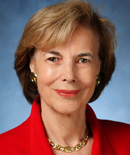
Prof. Rabbi Tamara Cohn Eskenazi
Effie Wise Ochs Professor of Biblical Literature and History, Hebrew Union College - Jewish Institute of Religion, Los Angeles – See author page
אחת דבר אלהים שתים זו שמענו, מקרא אחד יוצא לכמה טעמים וסוף דבר אין לך מקרא יוצא מידי שמעו.
“One thing God has spoken, two things have we heard” [Ps 62:12]. One verse may have several meanings, but in the end the literal meaning may never be overlooked. (Rashi, Introduction to Shir Ha-Shirim)
Surprisingly, Rashi makes his “pitch” for the so-called peshat in the opening lines of his introduction to Song of Songs, the very book most consistently treated by his fellow Jews as allegory. He insists that the text's literal meaning, or what some call “contextual meaning,” is not to be abandoned.
The peshat has important links to present-day critical scholarship in that it implies understanding the historical situation of the text. Critical scholarship offers opportunities to explore such contexts, the world with which the text was interacting, and the histories that are embedded in, and therefore communicated by, the text’s many resonances.
It is therefore a genuine blessing to discover through the work of TheTorah.com the many ways traditional Jewish interpretation and modern critical scholarship of the Bible enhance each other.
The modern and postmodern era foster a rich variety of paths to the heart of meanings. Yet, certain interpretive strategies sometimes obscure or coopt messages for extraneous purposes. Critical Bible scholarship, however, insists on not abandoning what the writers of the TaNaKh were trying to say in their own times (note the plural). It exposes the dialogue in the texts so that we can join the genuine conversation that began millennia ago. Thank you TheTorah.com for making this possible.
I continue to learn from TheTorah.com and share it as a teaching tool because it is consistently first-rate and relevant. This is the kind of scholarship the world needs. It is a superb resource.
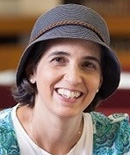
Dr. Tova Ganzel
Lecturer in Bible and Halacha at Bar-Ilan University, former Director of Bar-Ilan’s Midrasha program – See author page
TheTorah.com launched a discussion on a foundational issue in the lives of those of us who live in both the “academic” and the “rabbinic” worlds. TheTorah.com provided for many, for the first time, the opportunity to immerse themselves in an intellectual learning experience above and beyond learning experiences familiar to them. But more importantly, TheTorah.com revealed to us that the familiar distinction between the religious Jewish world and critical scholarship is not essential; it demonstrates the necessary interface between these two worlds. Some worry that critical scholarship of the Torah will uproot the basis of their faith. I worry that clinging uncritically to one’s faith will compromise his or her integrity and faith. The pursuit of the truth means engaging directly with consequent challenges.
I would like to take this opportunity to thank Marc, David and Zev, and all those involved, for successfully creating a balanced, nuanced discourse; and I wish you many years of activity, and even of the launching of TheTorah.com in Hebrew :-) We have a long way to go on this side of the ocean, too.
In sum, you have given many the opportunity expressed in the words of Rav Kook:
רוב המבוכות באות לעולם רק מפני האנשים שהם מסתפקים בדעות קצובות ומוגבלות ואינם חפצים להטריח את כח המחשבה שלהם לשוטט בכל המרחב של הרעיון בטבעו הטהור. על כן, כשהם מחדשים, או נדמה להם שמחדשים איזה מחשבה, אינם יכולים להסכימה כלל עם יסודי הדברים המנוחלים לאומה, והם טוענים אחר כך בהכרח של קריעת האומה למפלגות, בשעה שאנו רואים שהשלמת כל דבר היא באחדותו.
Most of the confusion comes to the world because of people who happily settle for limited views and are not interested in challenging themselves by letting their minds wander and broadening their scope of thought. Therefore, when they come up with a novel idea, or what they think is a novel idea, they cannot attribute it to the basic ideas of the nations, claiming to be splitting the nation into factions, when we see that this is really what completes and unifies.[2]
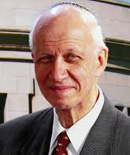
Dr. Rabbi Yitz Greenberg
Founder and former president of Clal, Rabbi Emeritus of the Riverdale Jewish Center – See author page
What does it mean to take the Torah to be the word of God? To me, it means that the text has infinite meanings and supports inexhaustible levels of teaching. No one method or approach can bring out all the meanings. We need all the help we can get to plumb the depths of Torah.
In the past century, modern and critical methods of Bible study have added extraordinary understandings and new insights on every page and chapter of Torah. Many of them were undetected by traditional commentators. Furthermore, the historical method and comparative cultural approaches have illuminated thousands of details by comparing them to contemporary parallel religious phenomena. These contributions have made modern biblical scholarship a must for anyone who treasures Torah and wants to understand it to the maximum.
Do these approaches sometimes shake up the traditional understanding, and in some people’s minds, undermine the sacredness of the Scriptures? The answer is: yes. But for many more people, the approach makes Torah deeper, more relevant, more applicable for our lives today. And for many, the sense of divine provenance is even more pronounced when they see the richer, more nuanced, more contextualized elements brought together so that Torah speaks more powerfully in a totally different culture. In short, modern/critical Bible study joins in to enable the Torah to speak to eternity.
Congratulations to TheTorah.com for seven years of illuminating the Torah with new light. This has been especially enriching for a person like myself who grew up studying Torah exclusively through the traditional lens and commentaries.
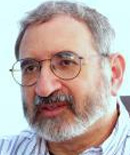
Prof. Ed Greenstein
Professor Emeritus of Biblical Studies at Bar-Ilan University – See author page
I wish to express my deep appreciation of the founders and editors of the magnificent resource, TheTorah.com, and of all those who have contributed over the past seven years. In traditional Jewish circles it cannot be taken for granted that the fruits of critical scholarship will be presented for most serious consideration not only for intellectual satisfaction but for spiritual insight and growth. This project is making a well-deserved impact in the service of truth, or rather, in the service of a God whose emblem is Truth.
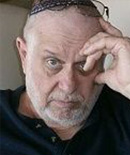
Prof. Menachem Kellner
Faculty at Shalem College’s Interdisciplinary Program in Philosophy and Jewish Thought – See author page
Critical scholarship forces us to see what the Torah itself actually says, as opposed to how it has been understood and how we would prefer to understand it. Glossing over difficult passages (morally, culturally) shows no respect to Torah and allows us to avoid confronting disparities between what the Torah says and what we might prefer it to have said. TheTorah.com thus has an important role to play in keeping Torah alive. Loyalty to tradition does not absolve us from looking at the Torah with the eyes God gave us (as Rambam and Rav Kafih both insisted).
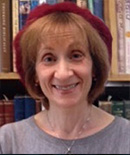
Judy Klitsner
Senior lecturer at the Pardes Institute of Jewish Studies in Jerusalem – See author page
I want to congratulate TheTorah.com for its valuable contribution in bringing the conversation about critical approaches to Torah study to a wide and varied audience. Throughout the centuries, sincere, thoughtful students of the Bible, deeply grounded in tradition, have grappled with vexing questions related to authorship, to signs of a maculate text, to the relationship between Torah and the ancient Near Eastern world, and more. The main difference between today’s most traditional readers of TheTorah.com and those readers throughout the ages, is that the former no longer feel compelled to regard the option of a critical response as an unspeakable “secret.” As engaged students of the Bible, no matter what our ideological affiliations, we are no longer bound by Ibn Ezra’s famous admonishment: “whoever is in the know must remain silent.”
TheTorah.com continues to make the case that Torah is well-served by uncensored inquiry, wherever it may lead, and that withholding honest questions and observations only encourages a belief that Torah is unable to withstand rigorous scrutiny, and as a result, is no longer relevant. With a more open approach, we find that the Torah’s words are, as the midrash posits, “like an exploding rock,” splintering into innumerable facets and interpretations[3]—including, one might well argue, many of the valuable findings of a critical approach to Bible study.
To my mind, a critical approach to the Bible, as illuminated by TheTorah.com, joins more traditional approaches in aspiring toward common goals: to increase our reverence for, and to uncover as much meaning as possible in, our foundational document, the Torah; and to do our best to meet Heschel’s vision that the Torah continue to “speak in every language and every age.”[4]
Mazal tov to TheTorah.com in reaching this “shemitah” milestone; I wish you much success in the important work you continue to do.
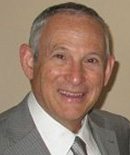
Prof. Rabbi Marty Lockshin
Professor Emeritus at York University and author of a four-volume translation of Rashbam’s commentary – See author page
The Torah is the most frequently studied Jewish text, since it is of interest to academics, to rabbis, to Jewish educators, and to lay Jews who go to synagogue on Shabbat. The greatest accomplishment of TheTorah.com has been creating a platform that interests large segments of all four of these audiences, thus allowing them to pursue an important dialogue about what the Torah means to Jews today.
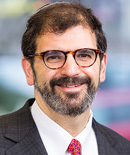
Rabbi Asher Lopatin
Rabbi of Kehillat Etz Chayim in Michigan and Executive Director of the Jewish Community Relations Council/AJC
Mazal tov to TheTorah.com on your 7th anniversary. TheTorah.com brings fresh and provocative ideas to the Torah field—enabling us to argue different Torah perspectives with respect and dignity. It is so important to have a site where the love and commitment to Torah study is so evident, but where there is no fear of expressing an opinion or a point of view, even if it challenges and shakes up the world of Torah and tradition.
As we head to Shavuot, the holiday of the Two Challot, I think about TheTorah.com as an expression of the effort it takes to make challah: kneading it hard and vigorously, putting it down and then kneading it again and again. The challah will just not come out well unless it is pounded enough, unless it is worked and challenged. And even then, every person’s challah tastes different, and may turn out different each week. You cannot have Shavuot (at least according to a traditional understanding which places Leviticus 23 in the days of Moshe…) without those challot, and we cannot have real Torah without the opportunity of “laying it all out” and letting everyone express their insights, their understandings, and their challenges to the way things have been understood. That is exactly the vigorous process that TheTorah.com enables. So, thank you TheTorah.com for allowing the Jewish world to knead our challot of Torah, with different consistencies, different flavors, but all delicious.
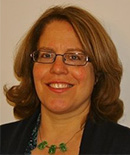
Prof. Rabbi Dalia Marx
Professor of Liturgy and Midrash at Hebrew Union College-JIR (Jerusalem) – See author page
Ashreinu, how fortunate we are to live in an era when the religious and the spiritual are not at opposition (or even, hostile) to each other, as used to be the case not so long ago. Scholars can enjoy a broader perspective by dealing with the spiritual treasures of our people, just as religious persons can gain great wealth and depth from delving into scholarly material.
In my field of Jewish liturgy, I witness ever-expanding fruitful and mutually beneficial relations between the academics and religious practitioners (sometimes even in the same person). The transition from suspicion to collaboration is a felicitous one, as the conversation between the two parties increase the knowledge and understanding of all who are involved.
TheTorah.com is a wonderful example of this approach: critical and innovative scientific material is presented in an accessible and approachable way, which allows everyone to partake in the wisdom of our sacred sources.
May TheTorah, you and all of us, merit to l'hagdil Torah u'lha'adir, to increase wisdom in the world, so that it is manifested in its utter greatness.

Dr. Rabbi Jeremy Rosen
Rabbi of the Persian Jewish Community of Manhattan, Chairman of the Faculty for Comparative Religion in Wilrijk Belgium – See author page
Benjamin Brown in his paper “The Comeback of Simple Faith”[5] has dealt magisterially with the tensions between simple faith and theological faith and the changing character of much of Judaism as a result of this divergence.
I believe it is a disastrous error to try to juxtapose the two wings as being in conflict rather than complementary. Both express the variety and richness within Judaism. This is the nexus at which TheTorah.com and TheGemara.com stand. They provide a forum for academic ideas as well as traditional commentary and commitment.
We are familiar with the different ways of looking at texts—critical textual analysis, as well as the aesthetic, poetic and existential. All of these deserve recognition and value. It is regrettable that the zeitgeist is so heavily biased in favor of negation and fundamentalism.
This is why these sites are so important and ensure sanity, and that the variety of thought within Judaism in regard both to Bible and Talmud will be valued and maintained for those who wish to benefit from intellectual openness.
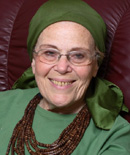
Prof. Tamar Ross
Professor Emeritus of the Department of Jewish philosophy at Bar Ilan University – See author page
There is a discipline entitled “critical biblical scholarship,” and another practice known as “learning” or “studying Torah.” The two have different functions and aims. Through literary, historical and linguistic analysis, critical scholarship strives, in the main, to reconstruct the original intent and meaning of the Bible, in light of the “when and how” it was written and compiled. The student or scholar of Torah, by contrast, is interested in all that has accrued to the original text since its final formulation, and its contribution and relevance to the significance of Jewish/human experience, or—to put it differently—to the life of the soul.
This is not to imply that the two activities are totally unconnected. There are and have been worthy individuals indulging in both. Occasionally, the insight of a traditional Torah exegete can shed light on the questions that a biblical scholar is interested in pursuing. More often, the original, even prosaic, meaning of the biblical text can inspire or even nourish and fortify the more fanciful, lofty and creative activity of Torah study, whose distinctive rules and constraints are not a total free-for-all and sometimes overlap those of the critic.
But far more importantly, awareness and acknowledgement of the accomplishments of critical biblical scholarship are crucial for the development of a mature and sober theology relevant for our times. In an age where apologetics (attempting to disprove the findings of science and reason on their own grounds, or to avoid them by invoking allegoric or symbolic interpretation as a general panacea for every clash that remains) have outlived their plausibility, honestly confronting the conclusions of historicist and scientific endeavors not only forces simple believers to wrestle with inadequate understandings of religious truth statements regarding the nature of the Torah, revelation, and divine authorship. It also encourages those attached to such faith to grope for more adequate formulations of the ultimate meaning of their continued attachment to these doctrines. While by no means a substitute for traditional Torah study, critical scholarship in this indirect sense fulfills a vital religious function.
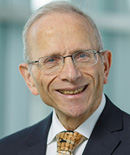
Prof. Jonathan D. Sarna
Joseph H. and Belle R. Braun Professor of American Jewish History, department of Near Eastern and Judaic Studies at Brandeis University
More than a half-century ago, my father, Prof. Nahum M. Sarna z”l, expressed in the introduction to Understanding Genesis (1966) “the profound conviction, born of personal experience, that the findings of modern biblical studies, in all their scholarly ramifications, provide the means to a keener understanding of the Hebrew Scriptures and may prove to be the key to a deeper appreciation of their religious message.” Those who insisted dogmatically, “upon interpretations and doctrines that flagrantly contradicted the facts,” my father jeered, “did not realize the self-exposure of an obvious insecurity that was more a reflection upon [their] own religious position than a judgment upon biblical scholarship.” “Far from presenting a threat to faith,” he retorted, biblical scholarship, like any challenge to the intellect, might “reinforce faith and purify it.”
My father’s “profound conviction” proved to be well ahead of its time. Many biblical scholars of his day found him insufficiently critical, because of his overt reverence for the Bible’s religious message; while many Orthodox rabbis back then dismissed him as heretical, because he accepted the findings of modern biblical studies instead of refuting them. Today, though, one finds in TheTorah.com precisely that balance between respect for the sanctity of the biblical text and adherence to modern scholarly methods that my father sought to achieve throughout his scholarly career. TheTorah.com’s commitment “to uphold the spiritual importance of intellectual honesty” reflects, indeed, one of my father’s most cherished personal principles.
So it is a particular joy to be able to congratulate my father’s devoted student, Professor Marc Brettler, as well as his colleagues, upon their completion of a full “shemitah” cycle at TheTorah.com. On to the Jubilee!
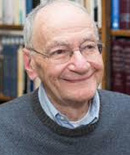
Prof. Rabbi Ismar Schorsch
Chancellor emeritus and the Rabbi Herman Abramovitz Professor of Jewish history at The Jewish Theological Seminary (JTS)
In Admiration
The completion of its first “shemitah” cycle by TheTorah.com website is truly a milestone to celebrate. Its astounding readership statistics demark a rare instance of critical scholarship as a social force. The founders’ vision, perseverance and commitment to high quality have attracted an ever larger number of scholars and readers to forge a global instrument of adult education with the avowed purpose of studying the Hebrew Bible in its cultural context. While admittedly such scholarship takes the Torah out its guarded isolation, it surprisingly shows time and again the uniqueness of its religious character. Dependence does not preclude originality.
TheTorah.com has powerfully reaffirmed for many the ancient injunction of “shnayim mikra ve-ehad targum,” that is, not to enter the synagogue on Shabbat without having first studied the weekly parasha twice in Hebrew and once in its venerable Aramaic translation. The import of that injunction is twofold: even as it resoundingly projects the absolute centrality of the Torah in Judaism, it gently suggests that the text is best studied through more than one lens. Interpretation is not only licit but vital, indeed destined to become the quintessential mode of Jewish thought.
The history of Judaism is replete with a steadfast flow of readings through bipolar lenses. From early instances of inner-biblical exegesis, to the addition of a related prophetic passage to the parasha, to the Aramaic translation of Onkelos, to the application of rabbinic midrash, either halakhic or aggadic, to the medieval quest for peshat, to the daunting flights of Kabbalists and to the creative imagination of Hasidic masters, Jews have always elicited meaning from the Torah by means of complementary or divergent perspectives. Prose and poetry are not mutually exclusive.
The recovery of the ancient Near East is one of the most remarkable achievements of modern scholarship, and to exclude its findings from our understanding of the Torah is but an obtuse rejection of a proven ethos of reading the Torah through multiple lenses. Willful ignorance can never enhance the sanctity of a sacred test.
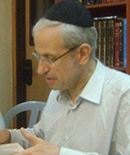
Dr. Hacham Isaac S. D. Sassoon
Rabbi and educator and a founding member of the Institute for Traditional Judaism (ITJ) – See author page
Congratulations to TheTorah.com on reaching this milestone; and kudos to those (they know who they are) whose perseverance, toil and, above all courage, have carried this visionary project forward.
Seven is a traditionally auspicious number, and traditional sources often list favored items in groups of seven symbolizing their special status. For example, the Talmud lists seven entities whose creation predates the mundane world (‘olam)—among them Torah. The Talmud is not merely teaching a truism about Torah’s primacy, but more profoundly, that Torah is created. In other words, the Bible is not God but like the rest of creation, amenable to human reason and susceptible of investigation.
Sometimes, artificial barriers are erected by well-intentioned people in the belief they are shielding Torah. Boldly, yet respectfully and with integrity, TABS lowers the barriers to afford us a glimpse of texts that shine brighter in the light of day.
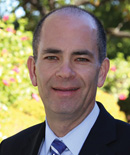
Rabbi Ron Stern
Rabbi at Stephen Wise Temple, Los Angeles, and founding rabbi of the Wise Center for Social Justice Engagement
Kol ha-Kavod and thanks for creating an incredible Bible study resource that brings together the world’s best scholarship and makes it possible to use modern historical criticism in a synagogue context.
I am more than a regular reader—I use your materials to teach and preach almost every week. In fact, I consider TheTorah.com to be a game-changer for the future of TaNaKh study by Jews and non-Jews. I refer my congregants to it often, quote from it, and reference your authors regularly.
TheTorah.com is an invaluable contribution to our generation’s embrace and understanding of Tanakh. It has literally transformed my rabbinate. Todah rabah.
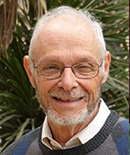
Prof. Chaim I. Waxman
Professor (Emeritus) of Sociology and Jewish Studies at Rutgers University – See author page
The number seven is very special in Jewish tradition, from its being the day of the week the week when God “rested” following Creation, to the number of lights on the Menora, which was outstanding among the vessels of the Beit Hamikdash [Temple] and which became the symbol of the Jewish People. How appropriate, therefore, that we highlight the seventh year of TheTorah.com, and that we do so at the time of the festival of Shavuot, zeman matan Torateinu, the anniversary of the giving of the Torah.
The factors which I pointed to as having played a significant role in the birth and development of TheTorah.com,[6] especially the growing presence of Orthodox Jews in the field of Jewish studies and the increased prominence of the gap year (or two) in Israel, where America, English, Australian, and other Diaspora youth frequently learn of the more progressive approaches to Bible study, are even more relevant today. Newer approaches to Bible study have spread to the Diaspora, as even can been seen in the growing popularity of the Koren Publishers’ Torah MiEtzion series and translations of volumes of modern, sometimes critical, works on Tanakh. Growing numbers of traditional, including Orthodox, Jews in the Diaspora study the Torah and are eager to understand it in light of modern scholarship, especially the physical sciences and history.
Increased general interest among Jews in Bible study can be seen in the development of the 929 movement, which is comprised of people from varied backgrounds who have divergent interests, all of whom seek insights from Tanakh.
No matter how one approaches it, the Tanakh of today is not your father’s Tanakh for most Jews, and the scholarship on TheTorah.com—some more traditional and some less—is increasingly meaningful.
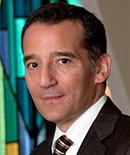
Rabbi David Wolpe
Author, educator and Max Webb Senior Rabbi of Sinai Temple in Los Angeles – See author page
Right before Pesach I had a curious experience. I was listening to a podcast, a lecture on the Haggadah by a well-known Orthodox Rabbi in New York. Suddenly he referred to a ‘Rabbi in Los Angeles’ who had questioned the historicity of the Exodus. Oy, I thought, here we go. But then he went on to say what the rabbi had not realized was that it didn’t matter if the event was precisely historical—it was the spiritual history of the Jewish people. I wanted to scream into my iPhone: That was the point of my sermon!
We cannot avoid the historical study of the Bible except by an intellectual obtuseness and obscurantism that does us little credit. But the truths of the Torah are not dependent on the cosmology of the Psalms or locating the shards of Noah’s ark. We should be simultaneously fearless and full of yirat shamayim: intellectually intrepid and religiously passionate. This is not to advocate a split but a synthesis: to acknowledge the human factor in a tradition that is ever changing but also carries the echo of eternity, the recognition that we and our texts are flawed because only God is beyond blemish. Judaism did not skate on the ice of history—tradition is its product as well as its shaper. As seekers and believers, we reach beyond our brokenness but we do not surrender our understanding.
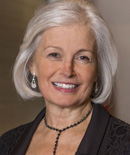
Rabbi Elaine Zecher
Senior Rabbi at Temple Israel of Boston and past Vice President of Leadership of the Central Conference of American Rabbis (CCAR).
On behalf of the Clergy of Temple Israel of Boston, I want to congratulate you on this milestone. We are thrilled by the magnificent and creative work of TheTorah.com and its academic and scholarly offerings.
I am particularly grateful for it in my Torah study preparation, for the robust diversity of scholars and scholarship from various perspectives—liberal to traditional, male and female, from different geographic locations, all gathered in one place. When does that happen in the Jewish community? What's more, online means they remain accessible, continually available as a most treasured resource.
Thank you for this wonderful gift of learning, wisdom, and knowledge.
TheTorah.com is a 501(c)(3) nonprofit organization.
We rely on the support of readers like you. Please support us.


